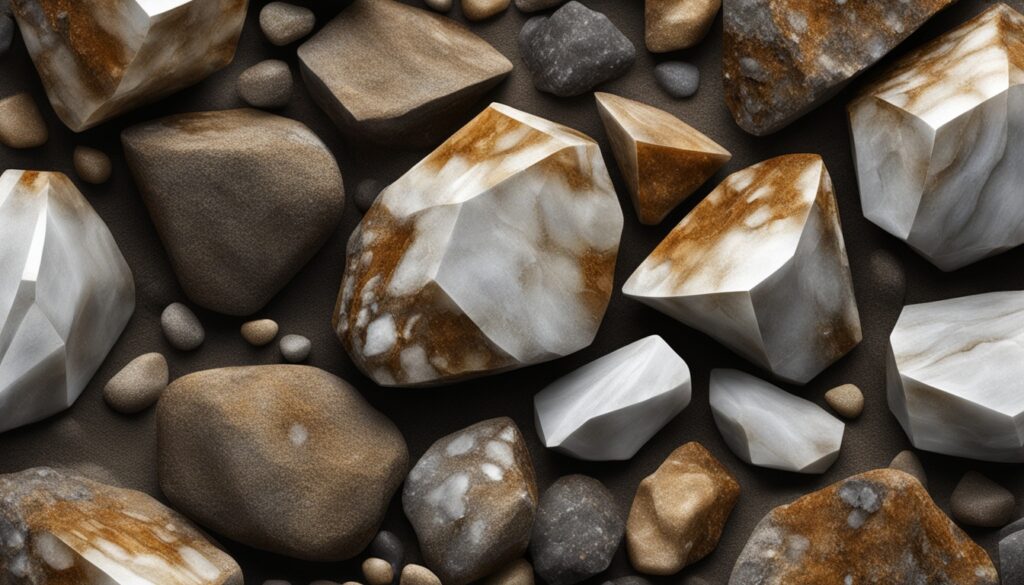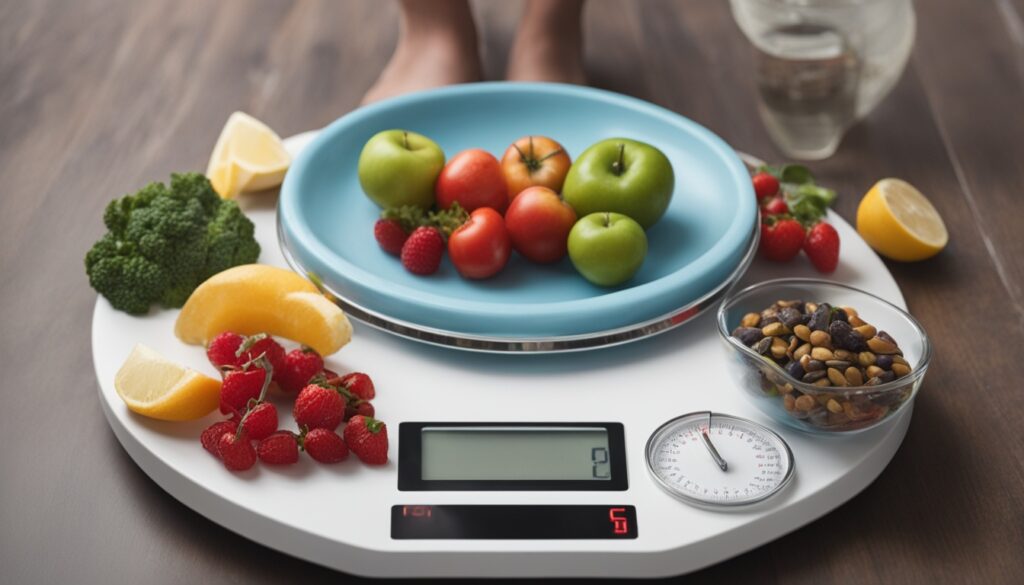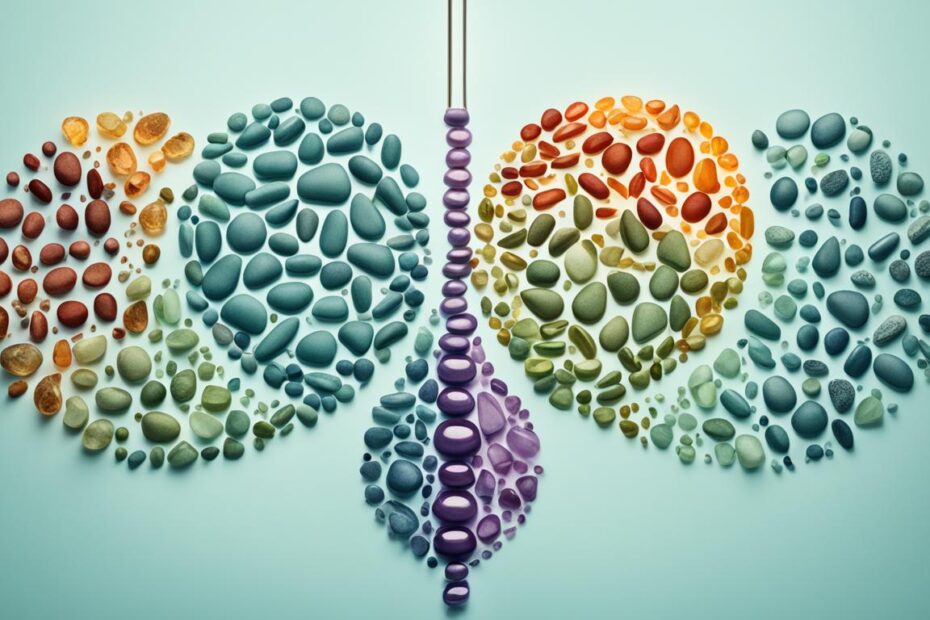I always wonder about how weight loss and kidney stones are connected. It’s a common topic in health talks. People who are very overweight are at a higher risk of getting kidney stones. But, can losing weight actually lead to kidney stones?
The answer to this is not simple. Losing weight can lower your risk of getting kidney stones. But losing weight also has its own risks. Almost a quarter of adults in Washington, D.C. are obese, making this issue very important. Let’s look into can weight loss cause kidney stones. We’ll also check out some tips to prevent kidney stones.
Rapid weight loss, like through bariatric surgery, can change how your body works. People who had this surgery were over twice as likely to get new kidney stones. This fact shows we must think carefully when we choose how to lose weight.
In the next parts, I’ll talk about how obesity and kidney stones are linked. We’ll discuss different stone types. And, I’ll share tips for losing weight in a healthy way. These tips will help reduce the risk of getting kidney stones. This info is great if you’re trying to lose weight or want to know more about your kidney health.
The Link Between Obesity and Kidney Stones
In recent years, people have started worrying more about obesity and kidney stones. I, as someone who cares about health, got curious. So, we’re going to look at why this is a big deal.
Prevalence of Obesity in the United States
The number of obese people in the US is going up fast. It went from 30.5% to 41.9% in just 20 years. This big increase is bad for our health. It means a lot more people could get kidney stones.
How Obesity Increases Kidney Stone Risk
Being obese makes you more likely to get kidney stones. Even if you’re healthy otherwise. This happens because of many reasons:
- Changes in urine composition
- Higher levels of inflammation in the body
- Increased oxidative stress
- Dietary habits associated with obesity
All these reasons make it easier for stones to form in our bodies.
Theories on Obesity-Related Stone Formation
Scientists have a few ideas on why obesity makes us more likely to get kidney stones. One main thought is that obesity increases the oxalates in our pee. Oxalates, in high amounts, can cause stones.
Obesity might change how our bodies use oxalates, making more end up in our pee. This is a big clue for stopping stones before they start.
Understanding Kidney Stones: Formation and Types
Kidney stones are hard deposits in the urinary tract. They form when chemicals in urine harden. The main type are calcium oxalate stones.

- Calcium stones (calcium oxalate and calcium phosphate)
- Uric acid kidney stones
- Struvite stones
- Cystine stones
Each stone type has its own reasons for forming. For example, people with diabetes might get uric acid stones. And struvite stones often happen after a urinary tract infection.
There are things that make getting kidney stones more likely.
- Family history
- Dehydration
- High-sodium diets
- Obesity
- Certain medical conditions
But staying hydrated can help a lot. Drink more than 12 glasses of water every day. This can lower your chances of getting a kidney stone. Also, eat healthy and keep a good weight.
Can Weight Loss Cause Kidney Stones?
Many wonder if losing weight can lead to kidney stones. The answer is not always simple. Losing weight can lower the risk of getting kidney stones. Yet, if you lose weight quickly, the chance of getting kidney stones might go up.
Weight Loss and Kidney Stone Risk Reduction
By losing extra weight, you might not get kidney stones. A study in 2015 showed this in rats. It’s a big win for your health.

Potential Risks of Rapid Weight Loss
Losing weight too fast can increase kidney stone risk. Diets that are extreme or quick can throw your body off. This can make you more likely to get kidney stones. So, it’s best to lose weight slowly and in a healthy way.
Bariatric Surgery and Kidney Stone Formation
Some surgeries to help you lose weight might make you more likely to get kidney stones. A study in 2023 showed this. The surgery might change how your body works, which can lead to kidney stones.
Certain medicines for losing weight, like orlistat and phentermine-topiramate, may also increase your chance of getting kidney stones. If you plan to use these, talk to your doctor first.
To lose weight safely, go for balance. Making small, steady changes in what you eat and how active you are is often the best route. This way, you can avoid raising your kidney stone risk.
The Role of Diet in Kidney Stone Prevention
Changing what you eat is very important to stop kidney stones. By picking the right foods, you can lower your chance of getting these stones.
Importance of Hydration
Drinking lots of water helps keep kidney stones away. I try to drink six to eight 8-ounce glasses every day. This makes my pee look light yellow or clear, which is good for stopping stones. Lemon water is great too because it has a lot of citrate, which fights stones.
Balancing Calcium and Oxalate Intake
Many think foods high in calcium cause kidney stones, but they don’t. I have milk and yogurt often. I do watch out for foods with a lot of oxalates, though. These include spinach, nuts, and chocolate. Keeping a balance between calcium and oxalates is key to prevent stones.
Reducing Sodium and Animal Protein Consumption
To cut my kidney stone risk, I eat less salt and animal protein. I try to have under 2,300 mg of salt daily and skip processed foods. Instead, I eat whole grains and veggies like broccoli and kale. These changes are good not just for my stones but for health in general.
Every person’s stone prevention plan is different, based on the type they get. It’s smart to talk to a doctor for advice on the best diet for you and your kidneys.
Urinary Changes After Weight Loss and Their Impact
Losing weight brings big changes to our body, even in our urinary system. Some of these changes might make kidney stones more likely, especially after big weight loss like with bariatric surgery.
One thing that makes kidney stones more common is not drinking enough. When we drop weight fast, our body makes less urine. This can make our urine stronger and raise the chance of getting kidney stones. Drinking lots of water is key during weight loss to avoid this.
Also, losing weight can make our urine have more oxalates. Oxalates come out of our stored fat and go into our urine. They can help form kidney stones. So, keeping an eye on how many oxalates we eat is smart during weight loss.
- Decreased urine volume due to dehydration
- Higher concentration of calcium in urine
- Increased urinary oxalate levels
These factors together mean we could get more calcium oxalate kidney stones after losing weight. To cut this risk, go for slow weight loss and drink lots of water. It’s also a good idea to talk to a doctor. They can help watch these changes in your urine as you lose weight.
Healthy Weight Loss Strategies to Minimize Kidney Stone Risk
Did you know losing weight smartly can stop kidney stones? Here, we’ll talk about some good ways to lose weight. These are also great for keeping stones away.
Gradual Weight Loss Approach
Losing weight bit by bit is key. I try to drop 1-2 pounds weekly. This lets my body get used to it. Plus, it lowers my chance of getting kidney stones. I stay away from diets that are too fast. They can make stones more likely.
Balanced Nutrition for Stone Prevention
Eating well is important for losing weight and keeping your kidneys healthy. I eat lots of fruits and veggies. Plus, I make sure to have 1,500 mg of calcium every day. Not eating too much salt matters a lot. Sometimes I take calcium supplements too.
Exercise and Its Benefits
I love to exercise because it keeps me healthy and helps me lose weight. I do workouts that mix cardio and strength training. This is the best way to stay in shape. Exercise also keeps me drinking lots of water, which is good for avoiding kidney stones.
- Aim for 30 minutes of exercise most days
- Stay hydrated during workouts
- Choose activities you enjoy to stay motivated
Doing these weight loss tips helps me drop weight and keep kidney stones away. It’s the perfect way to stay healthy!
When to Seek Medical Advice for Kidney Stones
Knowing when to see a doctor is important for preventing kidney stones. If you suddenly feel a lot of pain in your side or back, call your doctor. Also, if you see blood in your pee or feel sick, see a doctor right away. These could be signs of a kidney stone needing quick care.
It’s important to have regular health check-ups if you might get kidney stones. After bariatric surgery, you may wonder about weight loss and kidney stones. Always ask a doctor before changing your diet a lot. This is very crucial if you have had kidney stones before.
Preventing kidney stones is the main goal. Drink lots of water every day to help stop new stones. The CDC says eat less salt, and aim for five fruits and veggies every day. For more tips on how to stop kidney stones, visit the Urology Care Foundation’s guide.
